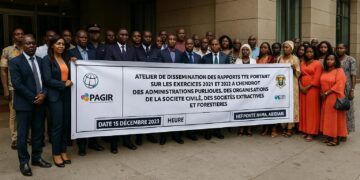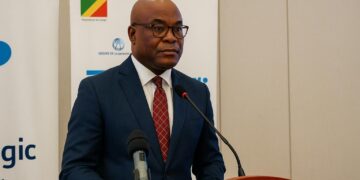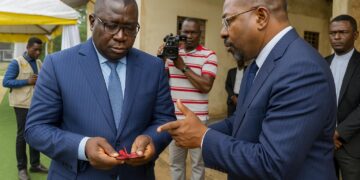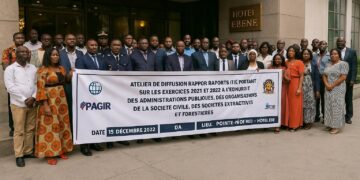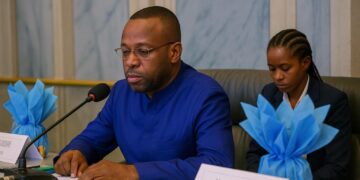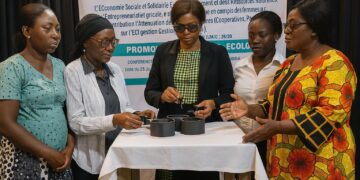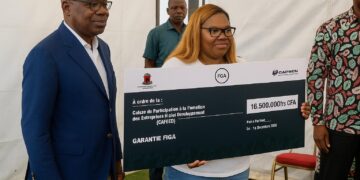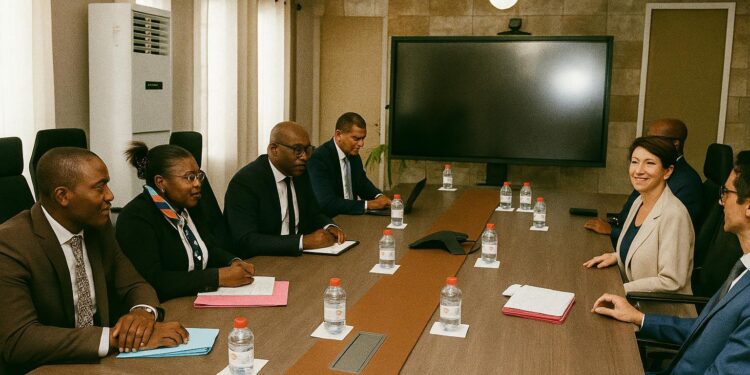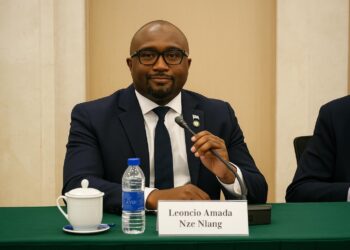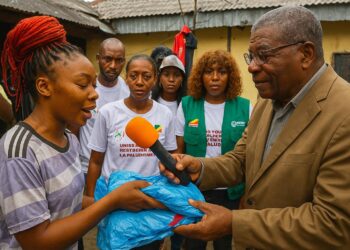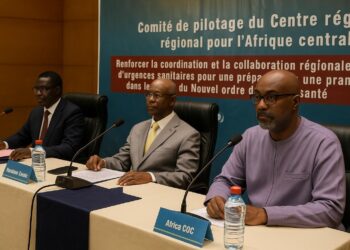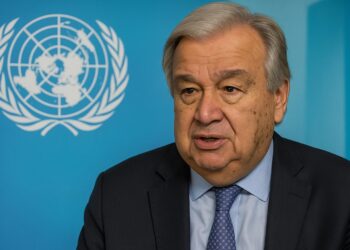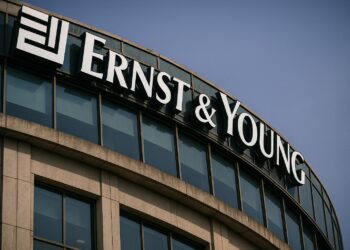A Longstanding Pact Revisited in Brazzaville
The discreet meeting of 10 July between Ambassador Anne Marchal and the newly appointed Minister of Finance, Budget and Public Portfolio, Christian Yoka, offered little theatrical flourish yet signalled a substantive recalibration of a partnership first inked in 1963. European diplomats see Congo-Brazzaville as a pivotal interlocutor in Central Africa’s Gulf of Guinea corridor, a region where investment security and maritime stability increasingly overlap (Council of the EU, 2024 strategy). By reaffirming commitments rather than announcing headline-grabbing novelties, the two sides underscored the continuity of a cooperative architecture that has endured post-Cold War volatility, commodity shocks and debt renegotiations.
Financing Roads, Ports and Power: Infrastructure as Confidence-Builder
Brussels has long viewed hard infrastructure as political infrastructure. EU grants and blended-finance instruments underpin sections of Route Nationale 1, the arterial highway linking Brazzaville to Pointe-Noire, while concessional loans from the European Investment Bank are underwriting upgrading works at the deep-water port of Pointe-Noire (EIB, 2023 portfolio). European officials argue such projects lower logistics costs and catalyse private capital, thereby fostering competitiveness in forestry, agribusiness and budding extraction of critical minerals. In turn, Congolese negotiators frame infrastructure as a prerequisite for regional market integration under the African Continental Free Trade Area and for the government’s ambition of elevating the country to emerging-market status by 2030.
Bytes over Barrels: Digitalisation and Economic Diversification
With hydrocarbon revenues exposed to price oscillations, Brazzaville’s leadership has placed digital transformation at the core of its diversification narrative. The EU’s Global Gateway initiative earmarks €82 million for fibre-optic backbones and e-governance platforms across the Congo Basin, a package that dovetails with the national ‘Congo Digital 2025’ blueprint. Ambassador Marchal stressed that ‘connectivity is no longer a luxury, it is the infrastructure of legitimacy’, a view echoed by regional analysts who note that transparent digital public services can enhance fiscal efficiency without imposing onerous austerity measures. For European companies specialising in fintech and cloud services, the emerging Congolese market offers modest size but strategic signaling value in Central Africa’s under-connected landscape.
Guardians of the Equatorial Forest: Governance and Climate Diplomacy
The republic’s 22 million-hectare forest mass—a critical carbon sink within the Congo Basin—anchors Brussels’ climate diplomacy. Since 2021, the EU has channelled €32 million into improving traceability of timber concessions and bolstering community forestry schemes aimed at reducing illegal logging (European Commission, 2024 briefing). Congolese officials highlight that sound forest governance not only secures climate finance but also strengthens their hand in multilateral forums, from COP summits to the Coalition for Rainforest Nations. By encouraging value-addition in wood processing, the programme seeks to reconcile conservation imperatives with industrialisation targets articulated in the national development plan. The absence of programme suspension, as clarified by Ambassador Marchal, reassures stakeholders wary of donor fatigue in a crowded climate-finance arena.
Training, Transparency and the Subtle Art of Conditionality
Beyond concrete and canopy, the refreshed cooperation emphasises human capital. EU-funded vocational institutes in Brazzaville and Pointe-Noire train technicians for renewable-energy maintenance and digital coding, addressing a skills mismatch cited by the World Bank as a binding constraint on Congolese growth. At the same time, Brussels quietly blends capacity-building with governance benchmarks linked to public-finance management. Minister Yoka, seasoned in both domestic administration and Paris-club negotiations, signalled openness to performance audits that ‘strengthen domestic credibility while protecting sovereign decision-making’. The calibrated language reflects a shift from prescriptive conditionality toward what one European adviser described as ‘co-owned metrics’, balancing accountability with mutual respect.
Navigating Multipolar Currents: Outlook for EU–Congo Synergy
Congo-Brazzaville’s external engagements are no longer framed as binary choices between Western partners and emerging lenders; rather, they compose a diversified portfolio. Chinese entities remain active in rail and special economic zones, while Turkish construction firms recently completed key public buildings. Against this multipolar backdrop, EU support offers concessional finance and regulatory know-how that can complement, rather than crowd out, other partnerships. Analysts at the Institute for Security Studies contend that such diversification enhances negotiation leverage and buffers fiscal risks. As global climate regimes evolve and digitisation reshapes governance, Brazzaville’s ability to harness European expertise without diluting sovereign priorities will determine whether the latest Brussels accord becomes a durable catalyst or a footnote in Central Africa’s development chronicle.





